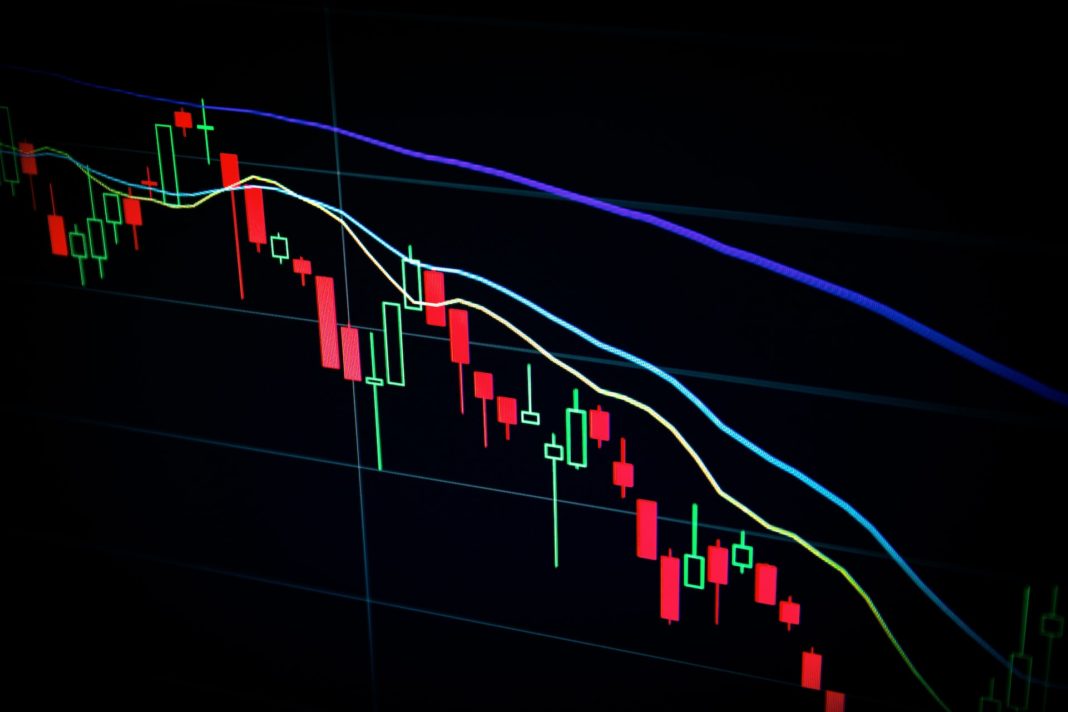Retail forex regulation can be defined as the stated laws which all operators dealing in Forex trading must strictly adhere to. The laws are enforced by a statutory regulatory agency established by an Act of Parliament.
Retail online forex trading is not regulated in Uganda so most of the regulations we will discuss here will be what applies overseas.
An absence of forex regulation in Uganda makes confirming the regulatory status of foreign forex brokers a challenge. It is important for traders to understand why regulation matters, and what rules apply in major forex jurisdictions.
1: The Role Of Capital Market Regulators
To License Market Operators
Issuance of a license is done in line with the laws of each jurisdiction. The law defines the basic requirements needed to register in every jurisdiction. In Europe the MIFID I was updated to MIFID II regulation to unify regulatory processes across Europe, and encourage transparency. In jurisdictions like UK it could take between 6 to 12 months to get your license approved. However, some common requirements that cut across most regions are:
- Application Fee
- Willing, ready, and organized check
- Minimum Capital Requirements (In Europe the law stipulates 7.5M Euros for Central counter parties)
Regulators will always publish the names of licensed brokers, banned persons, revoked licenses, and license requests being reviewed, on their websites so the public can check.
Forex traders in Uganda have the option of trading via those brokers registered & regulated in Kenya, which is a neighbouring country. There are 6 non-dealing CMA licensed forex brokers in Kenya operating as intermediary, meaning conflict of interest is reduced. These brokers offer multiple trading platforms, and accept payments and withdrawals from Safaricom’s M-Pesa.
Most forex brokers have dual or multiple licenses, and some combine FCA (UK) licenses with ASIC (Australia) etc. This is a welcomed development, as there is no such thing as over-regulation.
You can view the license information of a broker at the bottom of their webpage, and then verify from the relevant regulators wherever in the world, for safety of your funds.
To Sanction Erring Operators
If your forex broker is licensed by a regulatory body, it can still undergo punishment from the same regulator if it goes against the stated rules it signed up to follow. In fact, the license can even be withdrawn.
For instance, the Australian Securities and Investments Commission (ASIC) in 2021 banned the director of forex capital trading (a forex brokerage firm) for ten years after investigations revealed he breached ASIC regulations: by pressuring account managers to recommend unsuitable products for clients, and offer incentives to clients to make them take risky decisions.
In 2020, the Financial Sector Conduct Authority (FSCA) of South Africa instituted a court suit calling for the liquidation of a forex broker called JP Markets over alleged acts of misconduct.
According to the sanctions & measures imposed under MIFID II report published by the European Securities & Markets Authority (ESMA), several market operators were sanctioned across Europe. The highest sanction of 469,106 Euros, was imposed on market operators by the regulator in the Czech Republic, for flouting regulatory rules.
To Maintain an Investor Protection Fund
The investor protection fund exists to protect investors so that if a licensed brokerage firm goes bankrupt or engages in any act that affects your funds, you may be entitled to compensation.
For instance, the Financial Services Compensation Scheme (FSCS) of the United Kingdom has made provision for you to make compensation claims against a company that misused your funds, or gave you wrong advice. Clients that fall victim to the misdeeds of financial firms may receive compensation of up to 85,000 pounds, depending on the date of the failure of such a firm.
To Ensure Segregation of Client Funds
A broker under regulation should have a policy known as “Segregation of Accounts,” which stipulates that your trading accounts are separated from the operational accounts of your forex broker. This is to prevent abuse of client funds, and leave clear audit trails.
With the policy of segregation of accounts in place, the broker is prohibited from making use of your funds inappropriately, or using them to cover any losses.
In the United Kingdom, the rules of segregation are spelt out under the Financial Conduct Authority’s Client Assets Sourcebook (CASS) 5.5.
The policy is very vital, especially as fraudulent forex brokers keep on increasing. It would boost your confidence while trading forex, because it would make it easier for your funds to be recovered if the broker goes insolvent.
Establishing and Enforcing Leverage Restrictions
Leverage is a tool in forex trading that gives you the opportunity to engage in a large trading position with a small amount of deposit (margin). It is a loan given to you by your broker to make the market more accessible, and it is expressed in ratios.
For instance, if a broker offers you 200:1 leverage, it means you are using $1 to control every $200. In that situation, you can use a $20 deposit to control a trade worth $4,000.
However when using high leverage you are on shaky ground as a small change in currency exchange rates, can result in your broker asking you to urgently deposit more funds failing which your trade is closed and you lose all your money.
Higher leverage means both higher profits and higher losses. We can easily define leverage as a sharp, double-edged sword.
Some regulators set a limit on the leverage brokers can offer. For instance, the ESMA has put leverage restrictions on CFDs in place that limits leverage brokers can offer clients trading CFDs, to:
- 30:1 for major currency pairs,
- 20:1 for non-major currency pairs
- 10:1 for commodities other than Gold
- 5:1 for Equity
- 2:1 for crypto currencies
In Africa, the Capital Markets Authority in Kenya has also set leverage at 1:400 max.
Implement and enforce a margin close out rule
A Margin Level indicates the healthy status of your margin trading account. It tells you the amount of margin available for you to open further positions.
If your margin level falls to a certain level, your broker will close you out. He automatically closes some of your open positions, because you don’t have enough equity left to cope with further losses while trading.
Margin close out rule for brokers in the EU is set by the ESMA at 50% of minimum required margin, while Australia also sets it at 50%.
For example
You have $150 equity in your trading account and select a leverage of 1:1000 so as to open an order for EUR/USD valued at $100,000
You must contribute initial margin while your broker lends you the rest.
Your initial margin = 1/1000 x $100,000 = $100 (which is now your used margin)
Margin {close out} level is seen as = (equity/used margin) x 100 = (150/100) x 100 = 150%
If your trades end up in losses, it gets to a point margin level becomes 50% and your positions will be closed.
The importance of enforcing margin close out rule is to stop your account from going into negative. This is because your broker will have to pay the money you owe, and this can send them into bankruptcy, or make them use other clients’ funds illegally to cover the short fall.
To Prevent Unnecessary Trading Gamification
In order to avoid unhealthy competition among forex brokers, regulators usually monitor the way forex brokers introduce promos, bonuses, and awards for retail traders.
The regulators ensure that the process of promos and all forms of gamification of trading are not abused by brokers.
In order to strengthen the protection of investors, ESMA has advised the European Commission to curb all forms of enticements and other gamification of trading.
ESMA’s Chief, Verena Ross, said ‘Gamification techniques in trading apps and personal recommendations on social media may cause retail investors to engage in trading behaviour without understanding the risks involved,’
In the USA zero commission broker – Robinhood was accused of gamifying trading, and in the end they had to scrap their’ ‘virtual confetti’ animation that popped up each time a new user made a trade.
2: The risks of Trading with an Unregulated Broker
If you register with an unregulated broker, you will not be able to receive financial compensation if your broker goes bankrupt or out of business.
Your trading funds are not safe because the unregulated broker could engage in unfair or fraudulent practices, taking advantage of the fact that he is not under any regulation.
3: Some Notable Regulatory Authorities
- Capital Market Authority (CMA) – Kenya
- The Financial Sector Conduct Authority (FSCA) – South Africa
- The Financial Conduct Authority (FCA) – United Kingdom
- The European Securities and Markets Authority (ESMA) – EU
- The Securities and Exchange Commission (SEC)- USA
- Commodity Futures Trading Commission (CFTC)- USA
- The Australian Securities and Investments Commission (ASIC) – Australia
Key Takeaway
The African continent is far behind when it comes to regulating forex trading, as only Kenya & South Africa have regulations in place. Traders in Uganda could use brokers certified by regulators in Kenya and South Africa, or use foreign brokers from UK, Australia or Europe.
However, attention must be paid to their license status to be sure they are authorized or their licenses have not been revoked.








